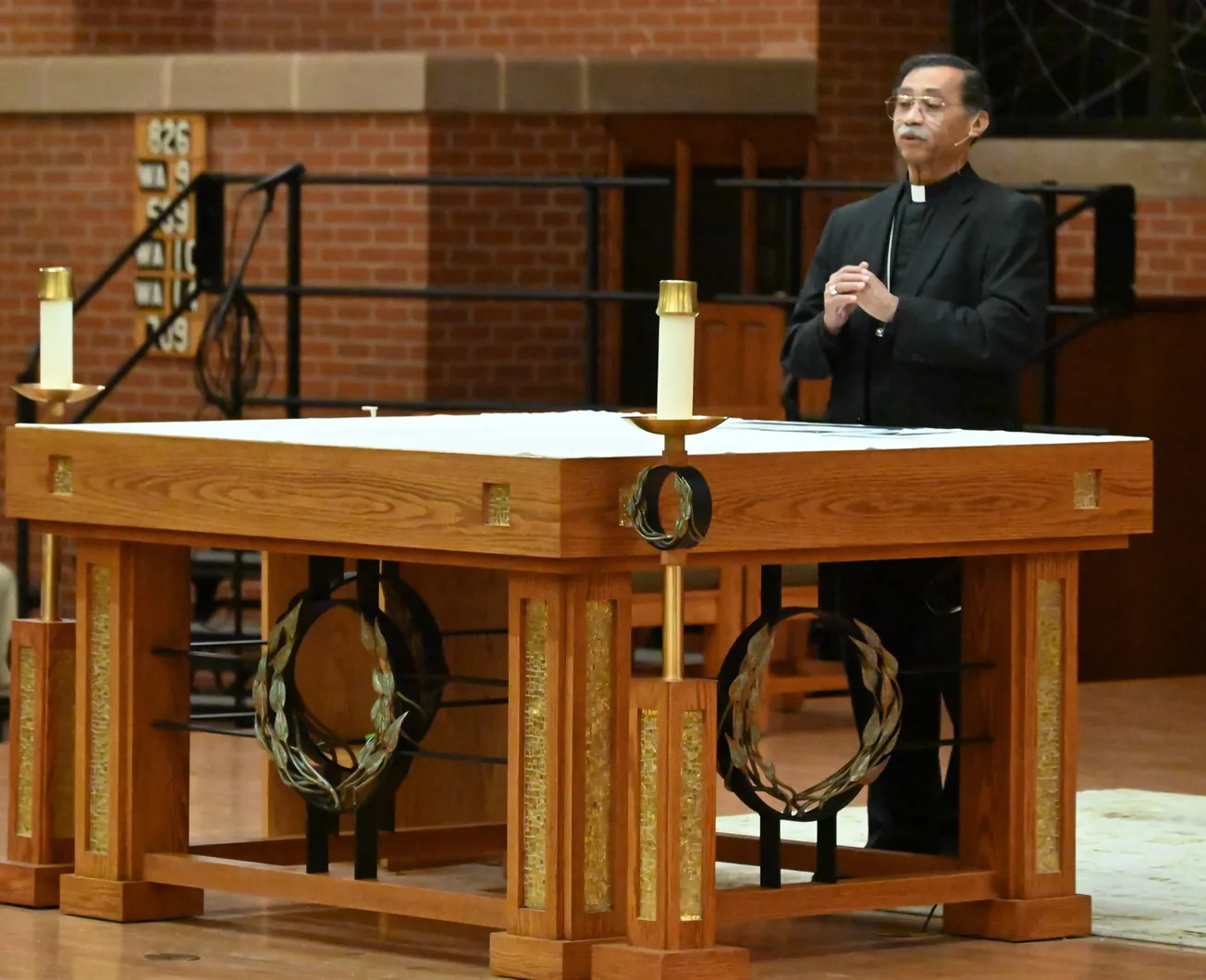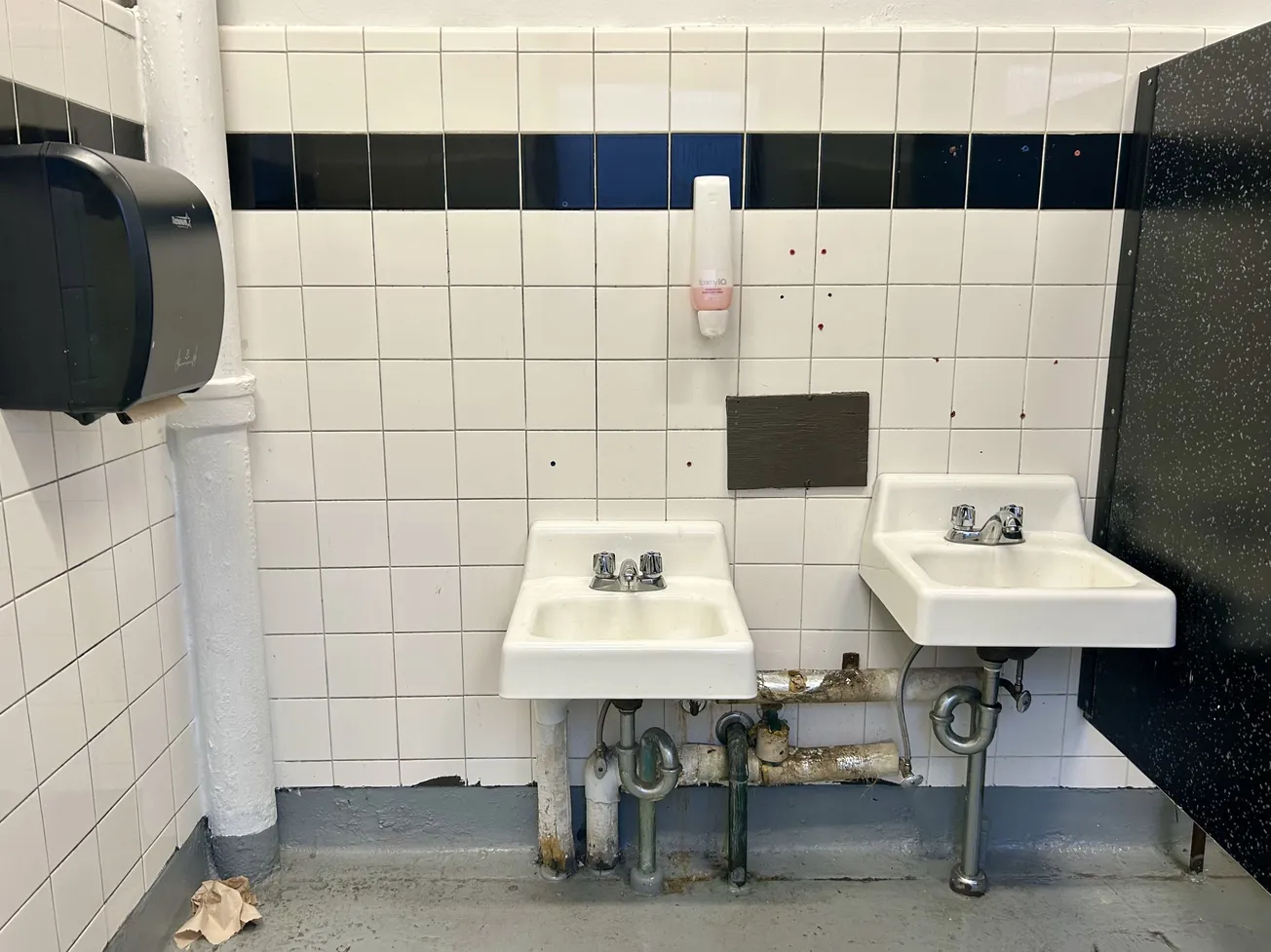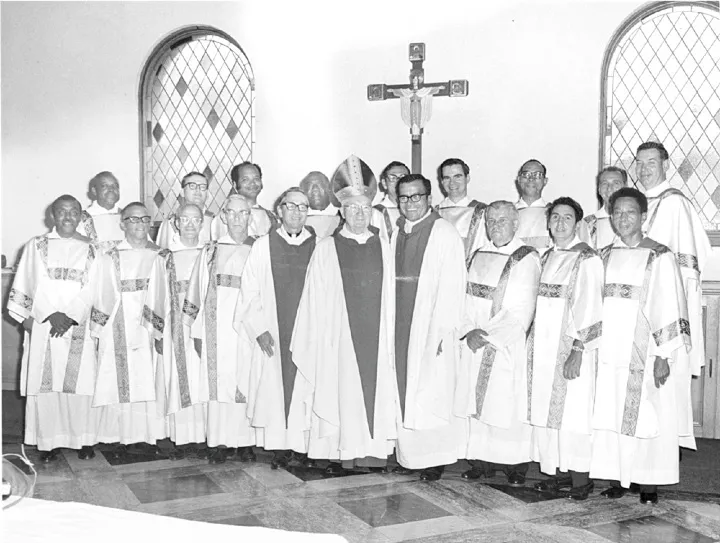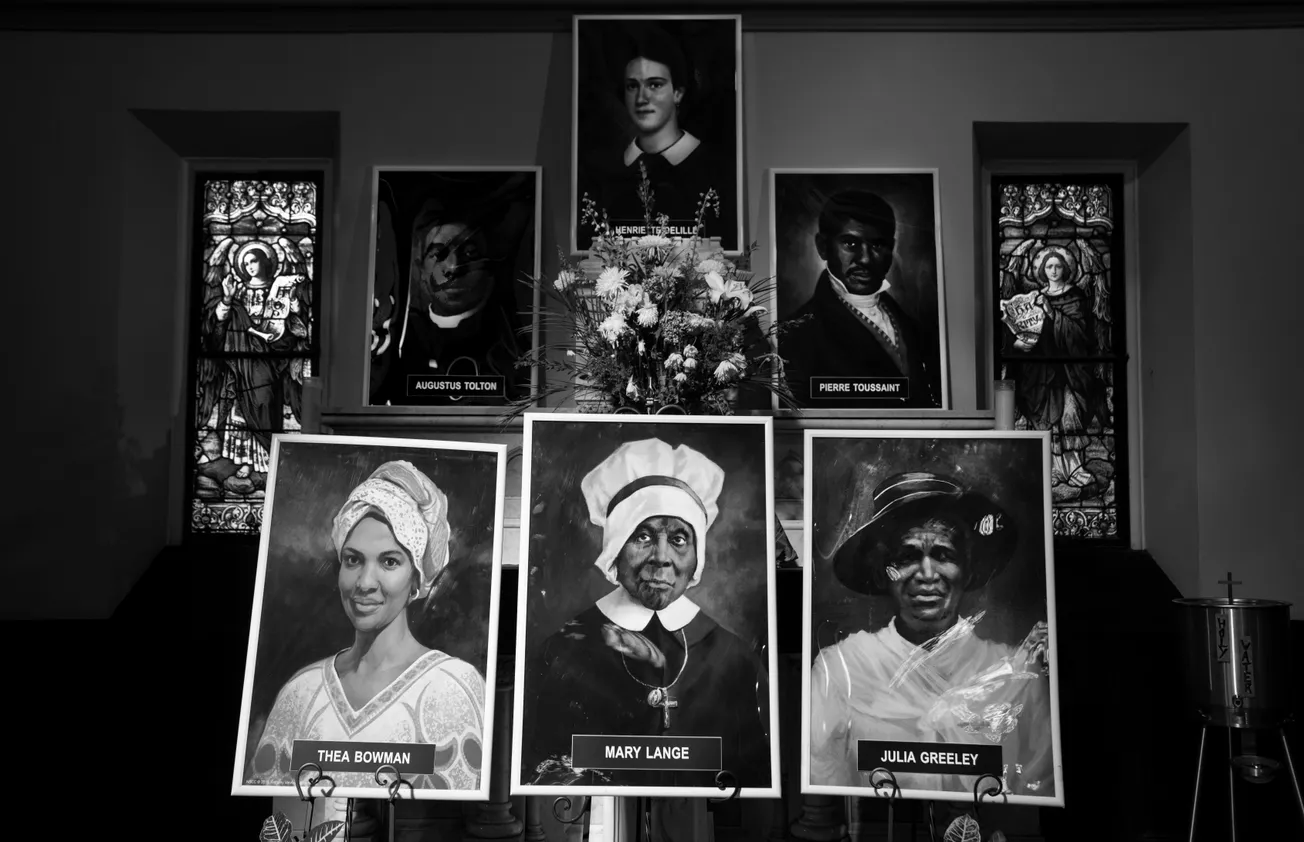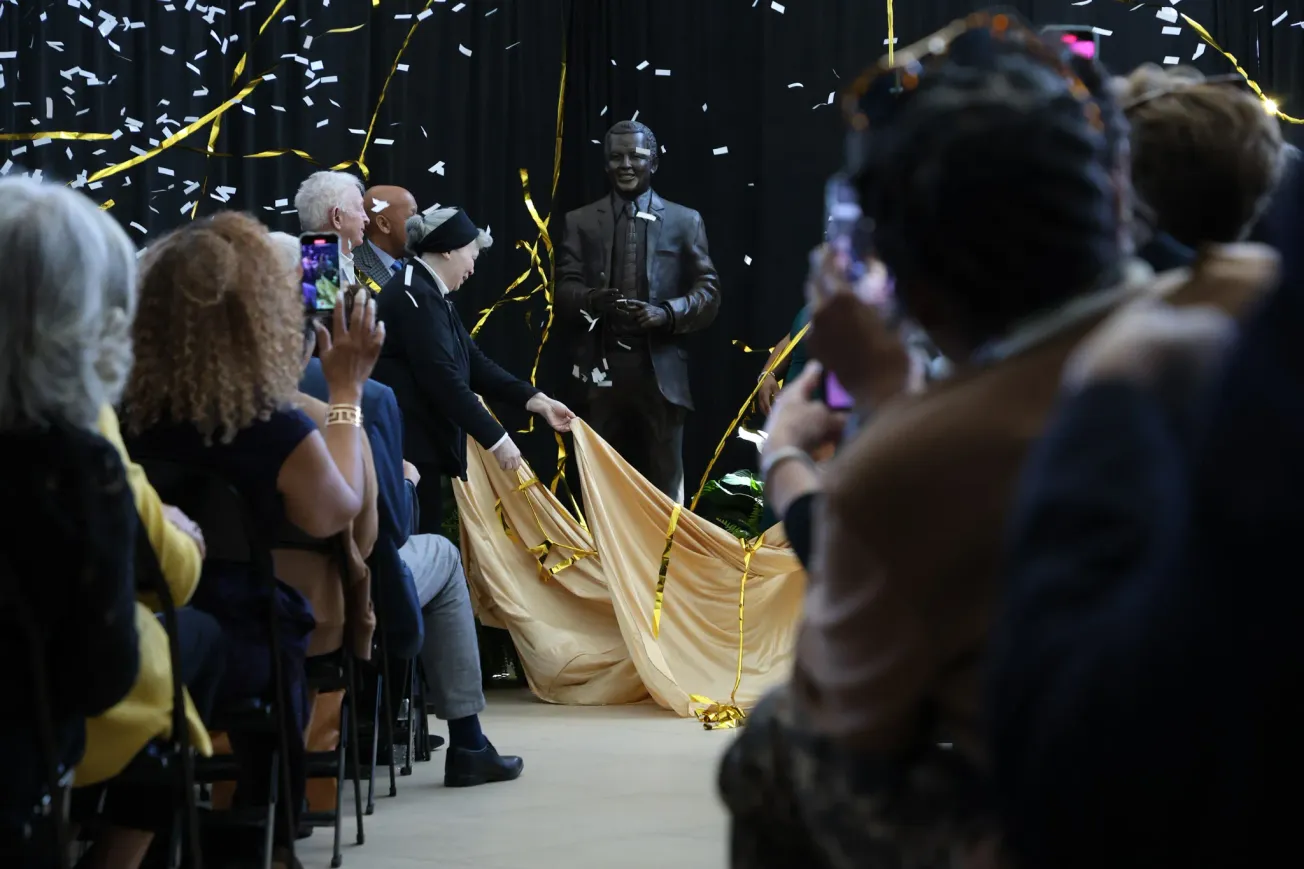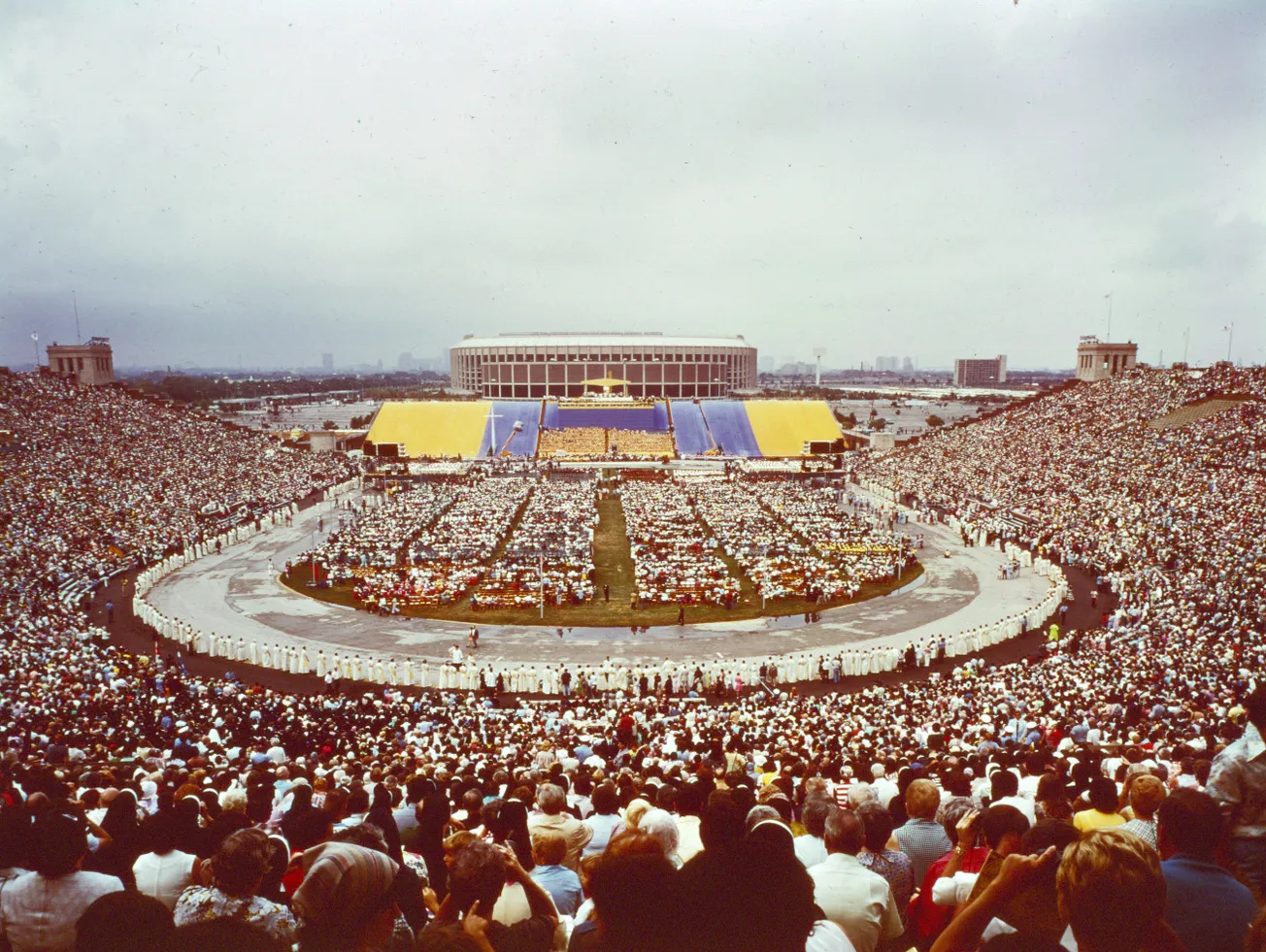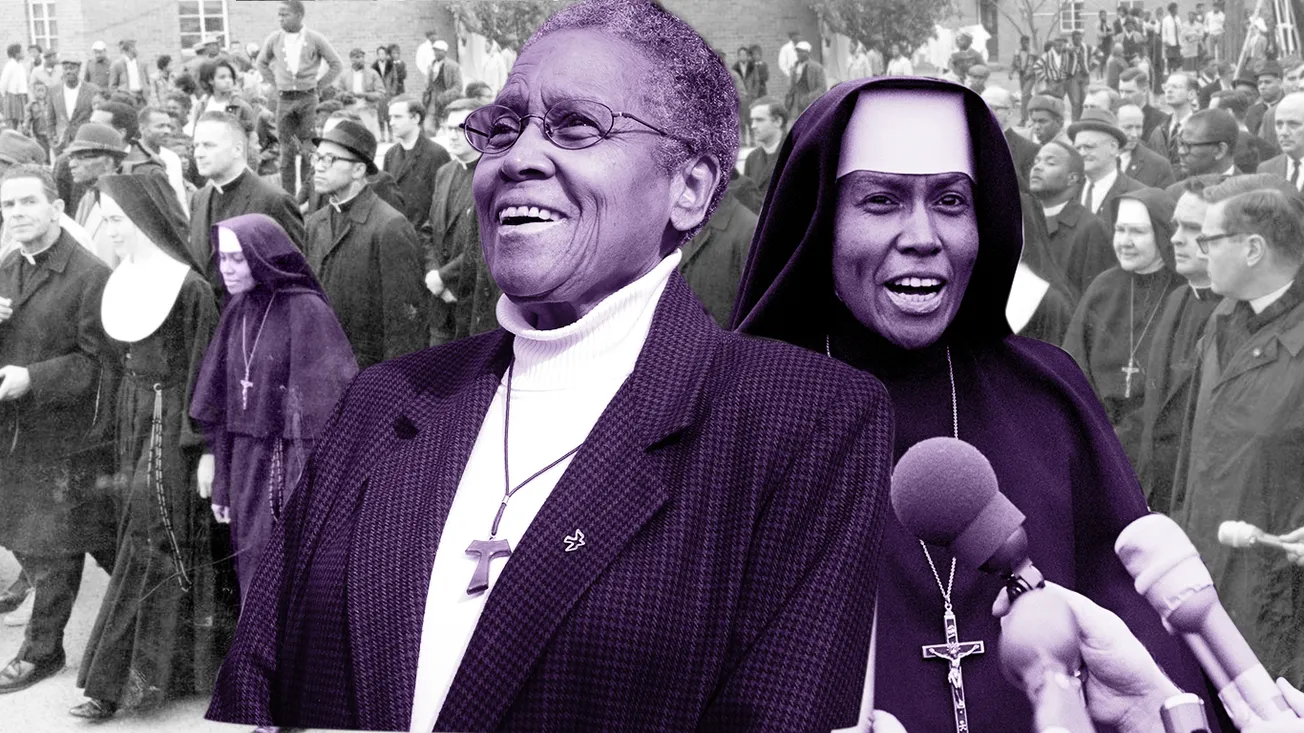The theme of the Black History Month program for the Diocese of Arlington bragged of a “Businessman to Bishop.” The speaker, however, projected holiness and humility, not hubris. Auxiliary Bishop Roy E. Campbell Jr. of Washington simply told his story. No miter, no crosier, no pageantry as he spoke softly, but intently, from where he would normally preside at Mass. The only hint of his ecclesial rank was the chained cross suspended around his neck, positioned properly below his Roman collar.
The bishop shared that he felt used to talking about important folks, not himself, when invited to speak during Black History Month programs such as this one on Friday evening in Virginia. But there he stood at the altar of St. John Neumann Catholic Church in Reston, sharing his own life's chronology with a mildly diverse audience of some 250 attendees.
The parish's Racial Justice Ministry sponsored the program, billing the occasion as “his faith journey from laity to bishop.” His biography was sprinkled with symbolic sevens: birth in 1947, priestly ordination in 2007, rise to the episcopacy in 2017. And true to form, the event began promptly at 7pm.
The program featured the gospel choir from historic St. Augustine Catholic Church across the river in Washington, D.C., Campbell’s first priestly assignment. Its 20 voices—only half of its members—projected the sound of a group at least three times its size in excellent sacred musical preludes and during several program junctures.


Left: St. Augustine Gospel Choir from DC sings during the program with Campbell in Virginia. Right: Campbell following the program with SJNCC pastor Fr Joe T. Brennan, OSFS.
Campbell said that his lifelong love for the Mass sustained him from his childhood days as a Latin Mass altar boy and remained a constant through his 30 years of corporate success, during which he made it a point to regularly attend daily Mass.
Along the way, he recalled a defining moment in his journey toward a priestly vocation that could help others: his encounter with a homeless man. One day, the businessman Campbell passed and ignored a down-and-out-looking man. However, something prompted him to double back to the man's location. He ended up taking the man to get a meal and keeping in touch to offer support over time, causing the man to state the obvious: “You must be a Christian.”
The future bishop said he went through several decision points during his discernment thereafter, being told he was too young to be a deacon, and too old to become a priest. He went on to spend about four years studying to become a permanent deacon before entering seminary for priestly formation.
His mentor, a monsignor in the archdiocese, quipped: “What took you so long?”
Campbell said one interviewer during his application process queried him about being the only Black person at the seminary—no Black students, teachers, staff, or support personnel.
“How do you feel about that?” they asked.
He said he responded likewise: “The question is, ‘How do you feel about it?’”
Campbell was reluctant to leave the DC area, where he had spent most of his life, to attend a seminary in Massachusetts. He also didn’t want to leave his sick father. But Roy Sr. assured him that the same God who had made a way to get him into the seminary would watch over him in his son’s absence. This was the same Baptist father who made sure the Campbell children were readied each and every Sunday to accompany their mother across town to a Black Catholic parish, St. Cyprian’s on Capitol Hill.
After ordination at age 59, Campbell went on to several parish assignments, recalling with special joy his early ones in poor neighborhoods. They all poured great faith and steadfast work into getting things done with so few resources to sustain and grow parish life.
Now, having been a bishop for nearly six years, Campbell’s time-tested mantra remains: Treat others as you want to be treated.
The program ended with a rousing rendition of “Lift Every Voice and Sing.” Afterward, one White parishioner turned to a Black Catholic visitor and stated, “I've never heard that song before.”
He proudly, succinctly replied: “It's called the Black national anthem. The words tell our story.”
Eugene Harper is director of music at St. Joseph Catholic Church in Alexandria, Virginia, and director emeritus of the St. Joseph Gospel Choir. He serves on two liturgical music boards, the Lyke Foundation and the Arlington Chapter of the National Association of Pastoral Musicians. He retired as director of American Forces Press Service in the Department of Defense.



